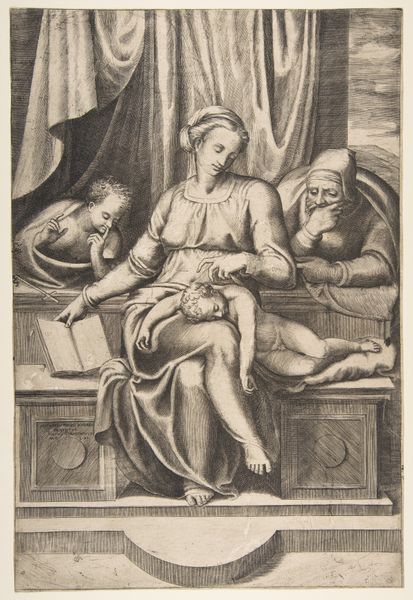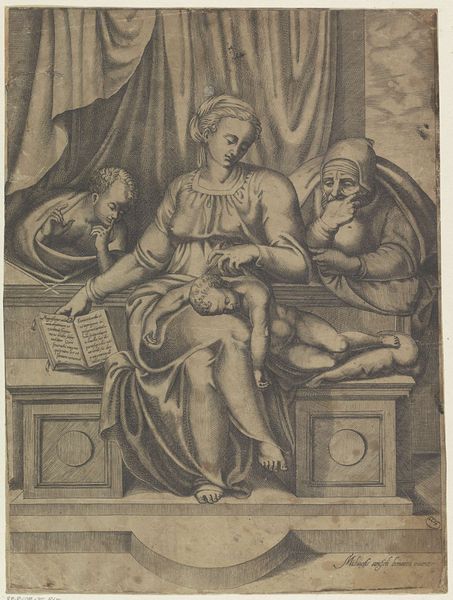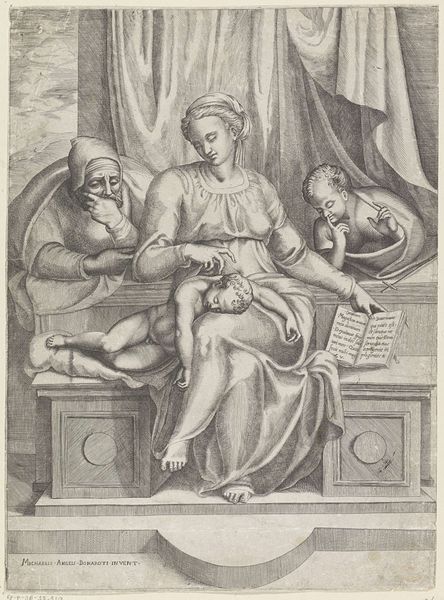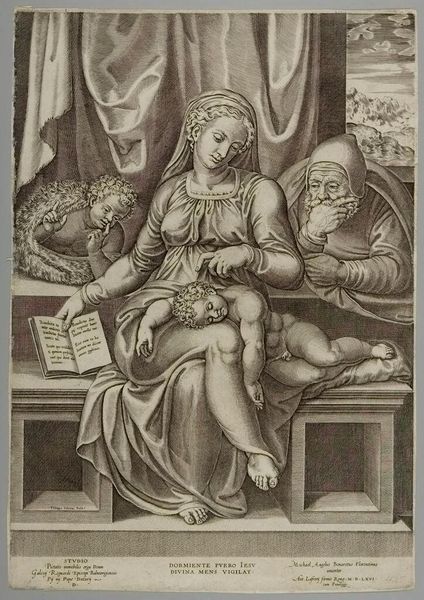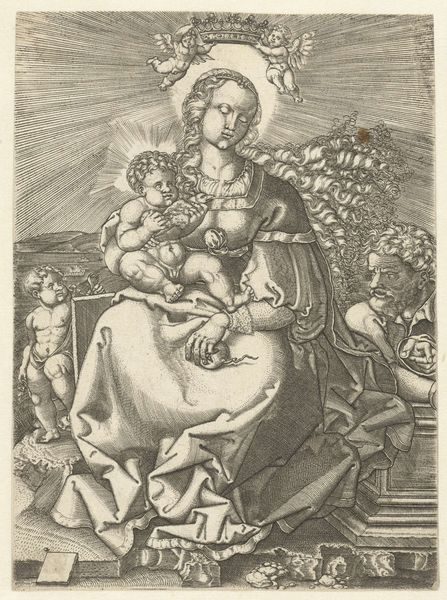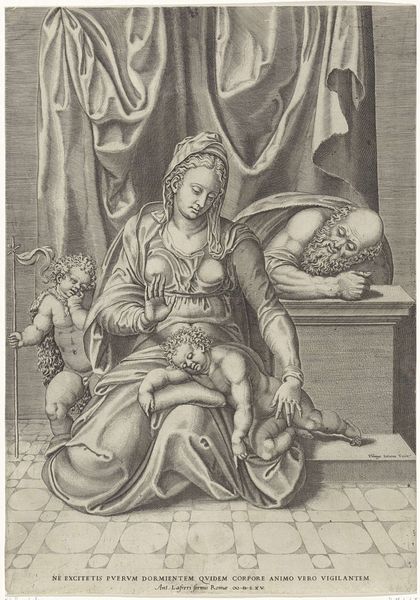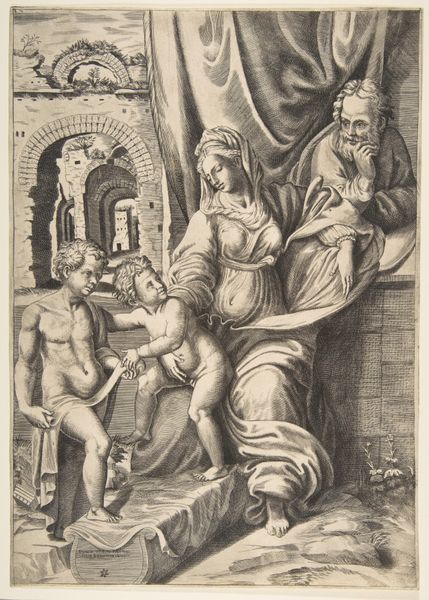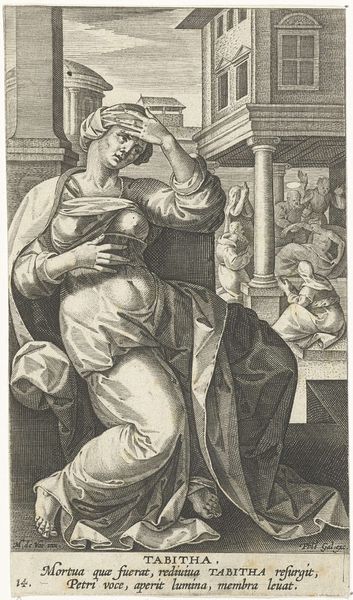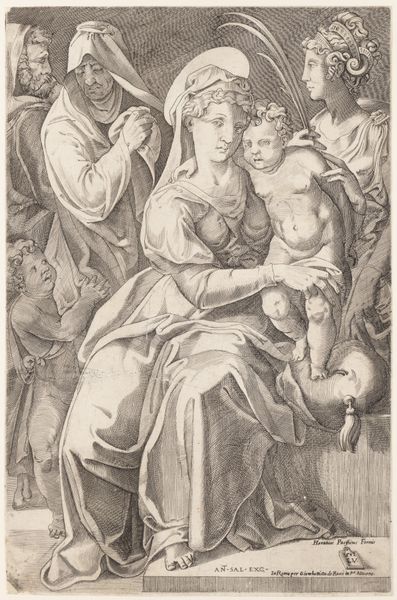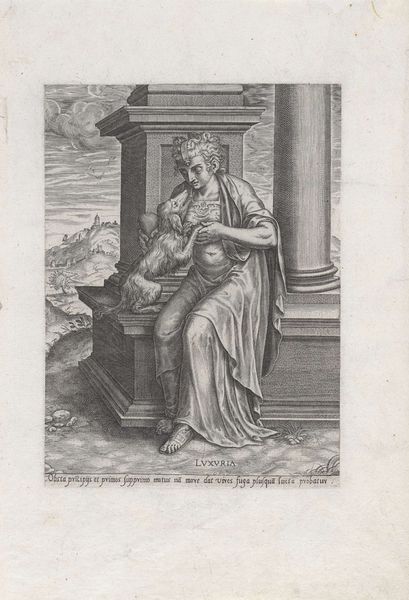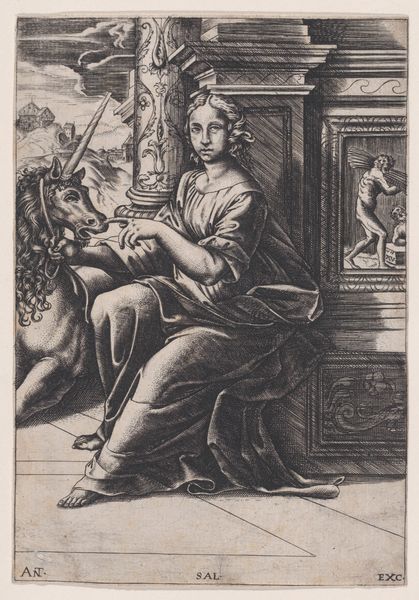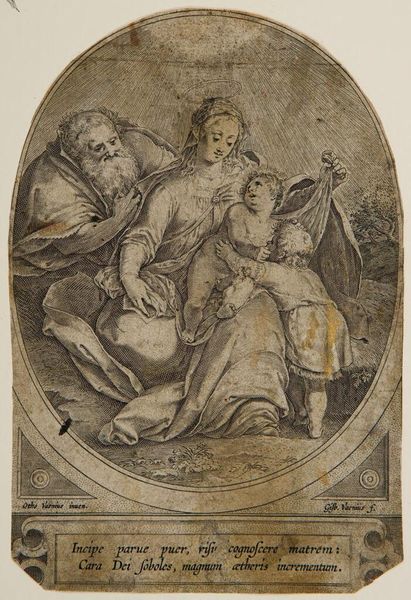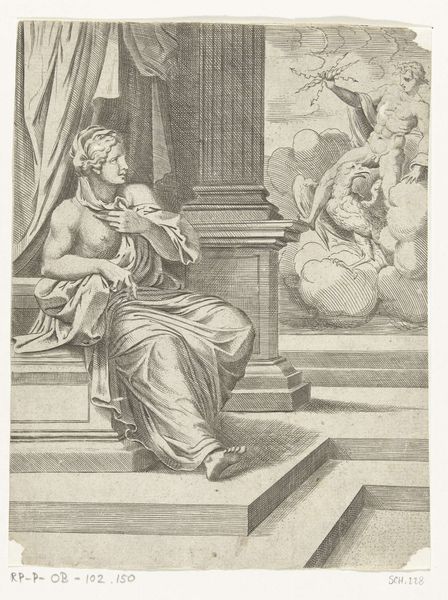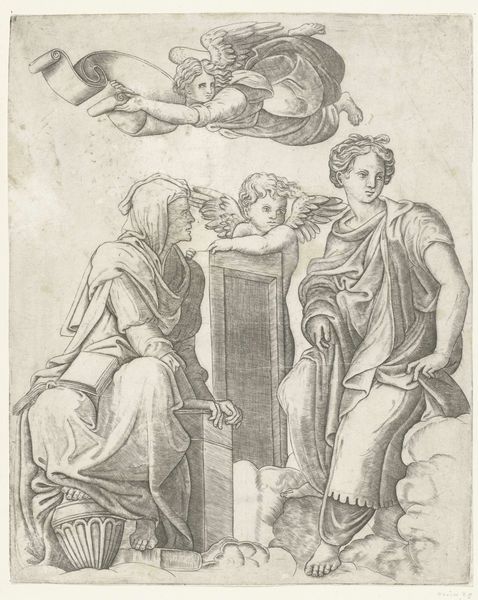
print, engraving
#
portrait
# print
#
figuration
#
line
#
history-painting
#
italian-renaissance
#
engraving
Dimensions: height 435 mm, width 306 mm
Copyright: Rijks Museum: Open Domain
Here we see an engraving by Philippe de Soye, dating from the late 16th century, depicting the Holy Family with John the Baptist. The print is made from a metal plate, likely copper, into which the design has been carefully incised. The artist would have used a tool called a burin to cut lines into the surface, creating grooves that hold ink. Look closely, and you can see how the varying width and density of these lines create the illusion of light and shadow, giving form to the figures and drapery. Engraving was a highly skilled and laborious process, requiring years of training to master the techniques of line-making and shading. Prints like this one were often made to disseminate religious imagery to a wider audience, acting as a form of mass production in the pre-industrial era. By paying attention to the material qualities and production processes involved in creating this engraving, we can gain a deeper appreciation for the artistry and skill of the printmaker, and challenge conventional ideas about art and craft.
Comments
No comments
Be the first to comment and join the conversation on the ultimate creative platform.
